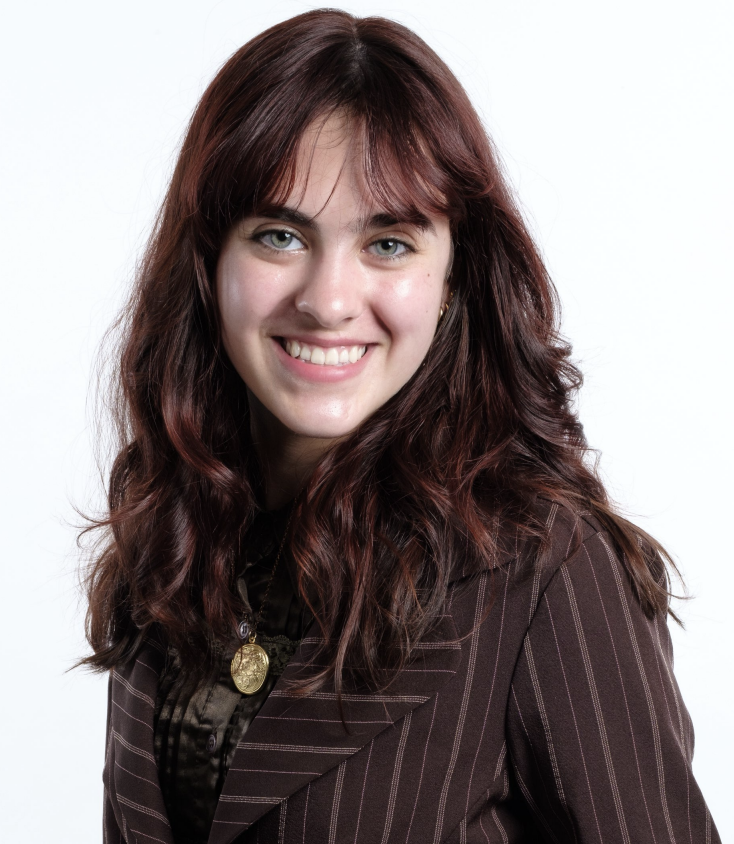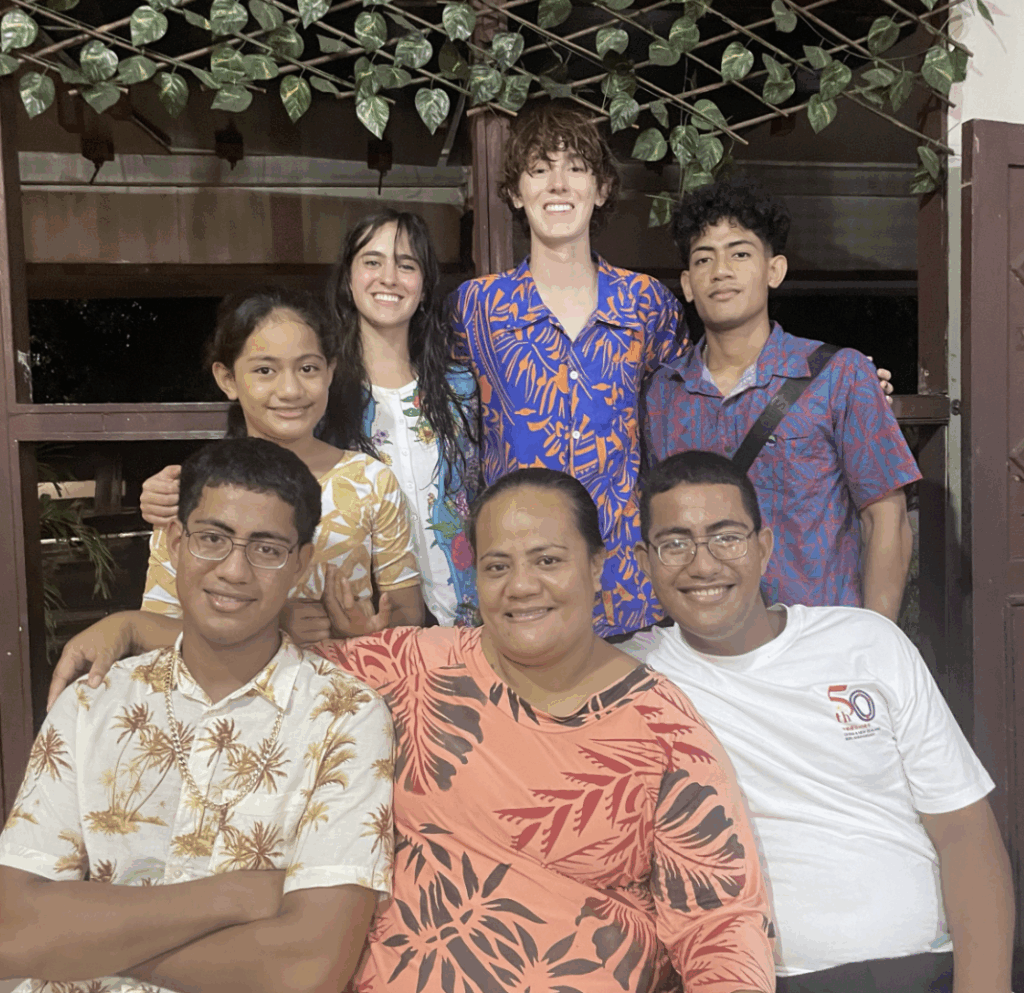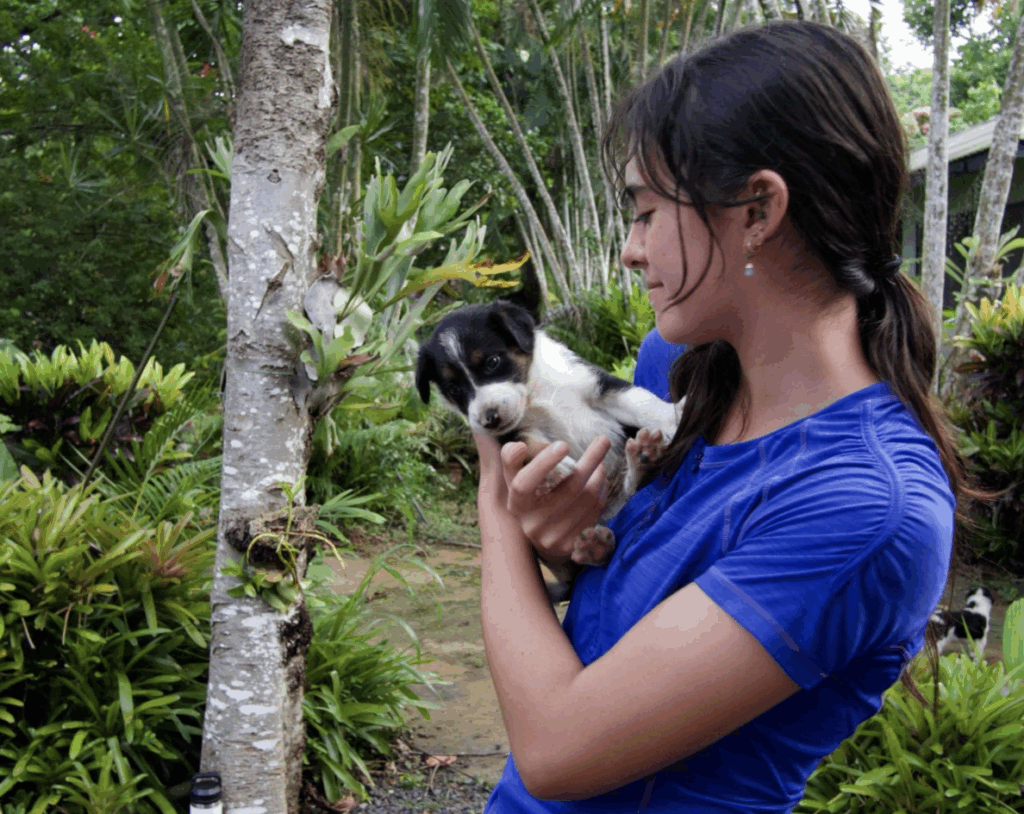SIT’s Alice Rowan Swanson Fellow launches project to preserve Samoa’s traditional healing methods
November 25th, 2025 | Fellowships, SIT Study Abroad

School for International Training (SIT) has named Isabella Larson, a 2024 alumna of SIT’s Samoa: Social and Environmental Change in Oceania program, as the newest Alice Rowan Swanson Fellow.
For her fellowship, Larson will implement the project “Sowing Resilience: Planting the Seeds of Protection for Samoa’s Taulasea System amidst Growing Climate and Social Pressures.” While conducting research for her Independent Study Project, Larson found that integral medicinal plants and Taulasea—traditional Samoan healers—are being threatened by climate change and social factors, particularly a lack of youth involvement in traditional medicine.
Larson’s project will create two publicly accessible sections of garden and a complementary seed bank designed specifically to grow medicinal plants threatened by the effects of climate change on Samoa’s island ecosystem. By choosing strategic locations, prioritizing threatened plants, and using community involvement to source plants, the goal is to give the community easy access to plants that are important to traditional medicine treatments and are becoming harder to find, while simultaneously providing the chance for young people to engage with the Taulasea system.
The intersection of human rights, community involvement, and traditional knowledge is critical for the resilience of Indigenous communities and global ecosystems now more than ever. Samoa’s Taulasea system is the nexus of medicine, nutrition, and ecological conservation for the island nation. International funding is rarely invested in Samoa’s cultural practices. Rather, aid is given when environmental disasters occur. This tactic is remedial, rather than preventative, and as an environmental health sciences major, my studies focus on why prevention is critical for well-being. This project will be a direct investment in Samoa’s Indigenous resilience to climate and human rights-related issues, which are deeply intertwined in island nations threatened by global climate change. I’m eternally grateful to receive this fellowship and create these gardens in Samoa.

The gardens will be located at the National University of Samoa (NUS) and the Vailima Botanical Gardens, both well-known community locations in Apia, and will be implemented by Larson and community partners. A local organic farm will provide plants, NUS students will assist with planting, and an NUS professor and researcher on medicinal plants will offer guidance on where to find more elusive plants to propagate in the garden. Larson will spend three weeks in Samoa in December, remaining in touch with contacts at NUS and the Vailima Botanical Gardens to monitor community engagement once she returns to the U.S.
SIT Samoa Academic Director Fetaomi Tapu-Qiliho shares, “At present, the Vailima Botanical Garden maintains separate areas for medicinal plants and for species under threat, but there isn’t a dedicated space for Indigenous medicinal plants that are vulnerable to climate change. Larson’s initiative stands out as the only project in Samoa focused on establishing a public garden specifically for at-risk medicinal plants. By partnering with an existing organization that runs related, though not identical, projects, she has been able to further strengthen and ground her project.”
In Samoa, traditional medicine is engrained deeply into everyday life, and older generations are concerned that the practice of it is fading with younger generations. The logistics of traditional medicine are also becoming difficult in particular cases due to the loss of habitat for crucial endemic species, which is being caused by ecosystem changes resulting from the effects of climate change.

After graduation in 2027 from the University of North Carolina at Chapel Hill, Larson plans to complete a master’s degree in environmental health sciences and would like to become a New Zealand citizen to continue her work in plant research and ethnopharmacology. She says, “This project is particularly relevant to a career in this field in New Zealand, since Samoa and New Zealand are deeply intertwined and the Samoan Taulasea system is present in New Zealand.”
The Alice Rowan Swanson Fellowship was established in 2009 by the family of SIT Nicaragua 2006 alumna Alice Rowan Swanson as a living tribute to her life, her passion for bridging cultures and helping others, and the role that SIT Study Abroad played in her life. A 2007 Amherst College graduate, Alice was killed while riding her bike to work in 2008.
The fellowships are awarded twice annually to SIT Study Abroad and International Honors Program alumni to return to their program country and pursue further development projects benefiting human rights in that region.
